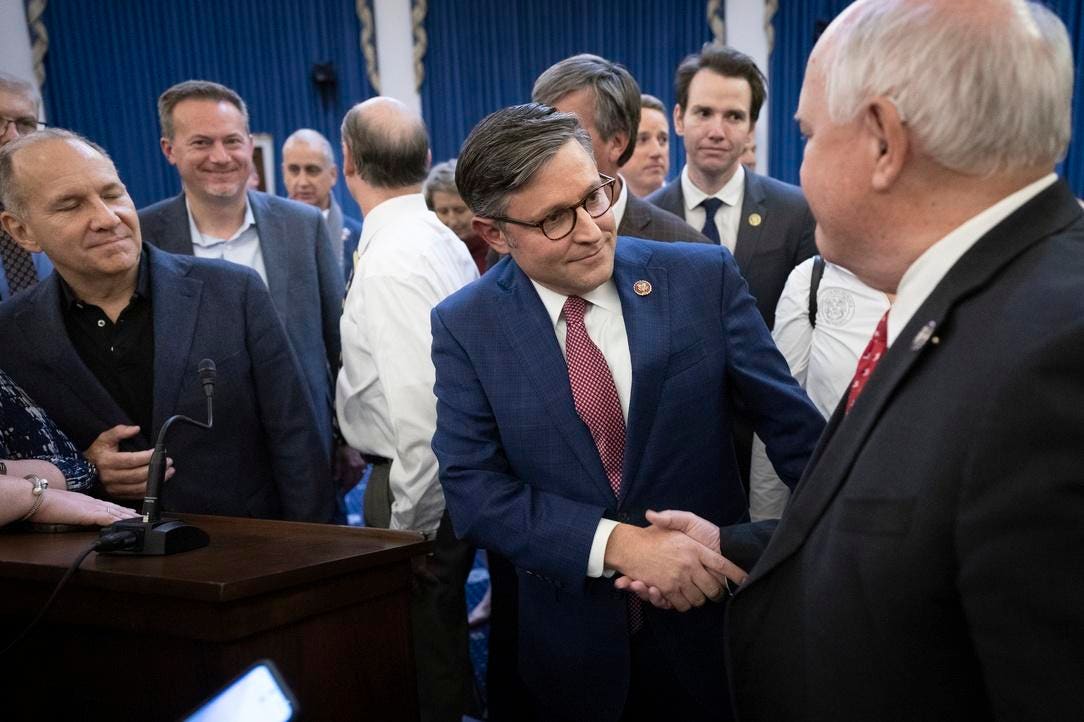After weeks of chaos, the House of Representatives has finally chosen a speaker. Immediately following his selection, the new Republican leader, Rep. Mike Johnson of Louisiana, focused squarely on the need to bolster America’s role in the world: “Let the enemies of freedom around the world hear us loud and clear. The People’s House is back in business.” But the election of Johnson is unlikely to help resolve overriding issues from how to reliably fund U.S. foreign policy to what stance to take on foreign conflicts from Ukraine to the war in Gaza.
Johnson is an enthusiastic, uncritical supporter of the current Israeli government, and is likely to move quickly to support the Biden administration’s request for $14 billion in emergency military aid to Tel Aviv. Support for Ukraine is another matter. Johnson has consistently opposed providing military and economic support to Kyiv, stating early in the war that “‘We should not be sending another $40 billion abroad when our own border is in chaos, American mothers are struggling to find baby formula, gas prices are at record highs, and American families are struggling to make ends meet, without sufficient oversight over where the money will go.”
On the spending front, boosters of the Pentagon are convinced that Johnson will be a strong ally in their efforts to push the department’s budget ever higher, in part because his district receives ample funding from the Air Force. Fellow Republican and defense appropriations subcommittee member Tom Cole of Oklahoma welcomed Johnson’s ascendance: “I take a great deal of solace from the fact that Mike represents a military district: Barksdale Air Force Base.” Barksdale is home to the Air Force Global Strike Command, and houses dozens of nuclear-armed B-52 bombers.
The question is whether Johnson’s election will have any effect on the two overarching foreign policy challenges facing the Congress and the country. The first is whether the security and diplomatic functions of the U.S. government can be funded on a reliable basis. The second, even more important question, is whether the Congress is capable of conducting a balanced and informed debate on the nature of U.S. global commitments and what resources are needed to support them.
The most urgent foreign and national security issue of the moment is the U.S. position on Israel’s invasion of Gaza. The war on Gaza was prompted by Hamas’s horrific attacks on Israel, but its primary victims have been civilians who played no role in those attacks and have no effective control over the actions of Hamas. Despite efforts at promoting humanitarian aid and lip service about encouraging the Israeli government to adhere to international law, the Biden administration has by and large enabled Israel’s unprecedented bombing attacks on Gaza and acquiesced in its cutoff of food, water, and electricity to the territory. The attacks so far have cost the lives of at least 7,000 Gazans, including over 2,000 children. The civilian toll of the attacks is unconscionable, and the danger of a wider Middle East war is real. The U.S. standing in large parts of the world is at serious risk, potentially undermining America’s global influence for years to come.
In an ideal world, Congress would be having a vigorous debate over the U.S. role in supporting Israel’s war on Gaza. Instead, only a handful of members have pushed for a ceasefire, much less raised questions about the broader security implications of backing the Netanyahu government’s military campaign. This conformity of thought and action in Congress runs contrary to public opinion. A recent poll by Data for Progress found that two-thirds of Americans support a ceasefire in the Israel/Gaza conflict.
Not only will the election of Mike Johnson as speaker of the House do little to guarantee that Congress can keep the trains running and the funds flowing when it comes to the operations of U.S. foreign policy, but it is unlikely to help spur the substantive debate that is urgently needed on America’s global posture. If that debate is to happen, it will be up to the broader public to force it onto the national agenda.
Read the full article here





